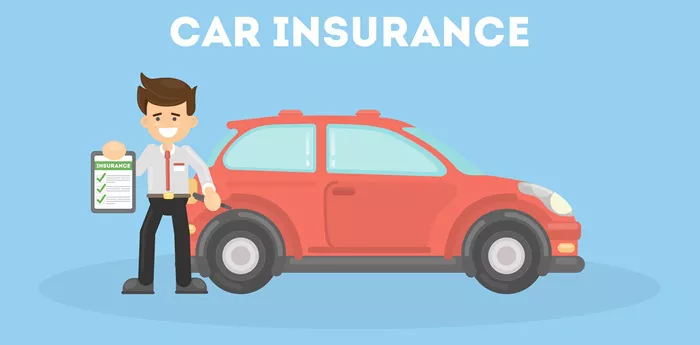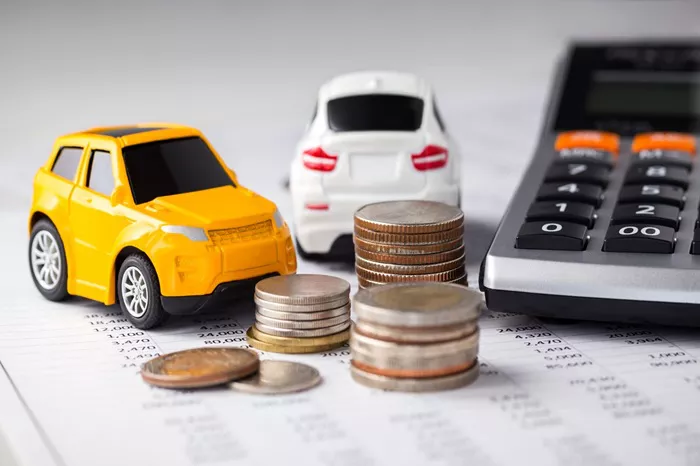Accidents can happen to anyone at any time. Knowing what to do after an accident can make the process smoother and ensure you are protected. This guide will help you understand the steps to take after an accident and how your car insurance can assist you.
Immediate Actions After an Accident
1. Ensure Safety
The first priority after an accident is safety. Check if you or anyone else is injured. If there are injuries, call emergency services immediately. If it’s safe, move your car to the side of the road to avoid further accidents.
2. Turn On Hazard Lights
Turn on your hazard lights to alert other drivers. This helps prevent additional accidents and ensures the safety of everyone involved.
3. Call the Police
In many cases, you should call the police after an accident. A police report can be crucial when filing an insurance claim. It provides an official account of the incident.
Collect Information
1. Exchange Information with Other Driver
Exchange names, addresses, phone numbers, and insurance information with the other driver. This information is essential for filing an insurance claim.
2. Gather Witness Information
If there are any witnesses, collect their contact information. Witnesses can provide valuable third-party accounts of the accident.
3. Take Photos
Take photos of the accident scene, including damages to all vehicles involved, the location, and any other relevant details. Photos can serve as evidence when filing a claim.
Document the Accident
1. Write Down Details
Write down the details of the accident as soon as possible. Include the time, date, location, weather conditions, and any other relevant information. Accurate documentation can help with the claims process.
2. Obtain a Copy of the Police Report
If the police are involved, ask how to obtain a copy of the police report. This report will be important for your insurance claim.
Notify Your Insurance Company
1. Contact Your Insurance Agent
Notify your insurance agent about the accident as soon as possible. Provide them with all the information you have collected. Prompt notification can expedite the claims process.
2. File a Claim
Your insurance company will guide you through the process of filing a claim. Be honest and provide all necessary information to avoid delays or issues with your claim.
3. Understand Your Coverage
Review your insurance policy to understand what is covered. This includes liability, collision, comprehensive, medical payments, and any other relevant coverage.
Dealing with Injuries
1. Seek Medical Attention
Even if you feel fine, seek medical attention after an accident. Some injuries may not be immediately apparent. A medical professional can assess your condition and provide necessary treatment.
2. Document Medical Treatment
Keep detailed records of any medical treatment you receive. This includes doctor visits, prescriptions, and any other relevant medical information. These records can be important for your insurance claim.
3. Follow-Up Care
Follow your doctor’s recommendations for follow-up care. This ensures you recover fully and can provide additional documentation for your claim.
Repairing Your Vehicle
1. Obtain Repair Estimates
Get repair estimates from multiple shops. This helps ensure you receive a fair price for the repairs. Provide these estimates to your insurance company.
2. Choose a Repair Shop
Choose a repair shop to fix your vehicle. Some insurance companies have preferred repair shops, but you have the right to choose your own.
3. Monitor Repair Process
Stay in touch with the repair shop and monitor the progress of your repairs. Ensure the work is done to your satisfaction.
Rental Car Coverage
1. Check Your Policy
Check your insurance policy to see if it includes rental car coverage. This coverage can help you with transportation while your car is being repaired.
2. Arrange for a Rental Car
If you have rental car coverage, your insurance company will guide you through the process of arranging for a rental car. Follow their instructions to ensure you are covered.
Dealing with Insurance Adjusters
1. Cooperate with the Adjuster
An insurance adjuster will be assigned to your claim. Cooperate with the adjuster and provide any requested information promptly. This helps speed up the claims process.
2. Be Honest
Be honest with the adjuster about the accident. Providing accurate information helps ensure a fair settlement.
3. Review the Settlement Offer
Review the settlement offer from your insurance company carefully. If you have any questions or concerns, discuss them with your insurance agent.
Legal Considerations
1. Consult an Attorney
If the accident involves serious injuries or significant damages, consider consulting an attorney. An attorney can help protect your rights and ensure you receive fair compensation.
2. Understand Your Legal Rights
Understand your legal rights after an accident. This includes your right to seek compensation for damages and injuries.
Preventing Future Accidents
1. Safe Driving Practices
Practice safe driving to prevent future accidents. This includes following traffic laws, avoiding distractions, and driving defensively.
2. Vehicle Maintenance
Regularly maintain your vehicle to ensure it is in good condition. This includes checking tires, brakes, and other critical systems.
3. Insurance Review
Regularly review your insurance policy to ensure you have adequate coverage. Update your policy as needed to reflect any changes in your circumstances.
Understanding Different Types of Coverage
1. Liability Coverage
Liability coverage pays for damages you cause to others in an accident. This includes bodily injury and property damage.
2. Collision Coverage
Collision coverage pays for damages to your vehicle resulting from a collision. This coverage is essential if you want to ensure your vehicle is repaired or replaced after an accident.
3. Comprehensive Coverage
Comprehensive coverage pays for damages to your vehicle not caused by a collision. This includes theft, vandalism, and natural disasters.
4. Medical Payments Coverage
Medical payments coverage pays for medical expenses resulting from an accident. This includes expenses for you and your passengers.
5. Uninsured and Underinsured Motorist Coverage
Uninsured and underinsured motorist coverage protects you if you are in an accident with a driver who does not have adequate insurance. This coverage can pay for medical expenses and damages.
6. Personal Injury Protection
Personal injury protection (PIP) covers medical expenses and lost wages resulting from an accident. This coverage is similar to medical payments coverage but often includes additional benefits.
see also: What to Do if You Lose Car Insurance Policy?
Filing a Claim for Damages
1. Understand the Claims Process
Understand the process for filing a claim for damages. This includes notifying your insurance company, providing necessary documentation, and working with an adjuster.
2. Provide Documentation
Provide all necessary documentation to support your claim. This includes photos, repair estimates, medical records, and any other relevant information.
3. Follow Up
Follow up with your insurance company regularly to ensure your claim is being processed. Stay in touch with your adjuster and provide any additional information they request.
Dealing with a Total Loss
1. What is a Total Loss
A total loss occurs when the cost of repairing your vehicle exceeds its market value. In this case, your insurance company will pay you the market value of your vehicle instead of repairing it.
2. Determine Market Value
Your insurance company will determine the market value of your vehicle. This is based on factors such as the age, condition, and mileage of your car.
3. Negotiate Settlement
If you disagree with the settlement offer, you can negotiate with your insurance company. Provide any additional information that supports your claim for a higher settlement.
Handling Disputes with Your Insurance Company
1. Review Your Policy
Review your insurance policy to understand your coverage and rights. This can help you resolve any disputes with your insurance company.
2. Contact Your Insurance Agent
Contact your insurance agent if you have any issues with your claim. They can help explain the process and resolve any disputes.
3. File a Complaint
If you cannot resolve a dispute with your insurance company, you can file a complaint with your state’s insurance department. They can investigate your complaint and help resolve the issue.
Preparing for Future Accidents
1. Keep an Emergency Kit
Keep an emergency kit in your car. This should include items such as a first-aid kit, flashlight, and basic tools.
2. Know Your Policy
Familiarize yourself with your insurance policy. Understand your coverage and what to do in case of an accident.
3. Stay Informed
Stay informed about changes in insurance laws and regulations. This can help you ensure you have adequate coverage and know your rights after an accident.
The Importance of Adequate Coverage
1. Financial Protection
Adequate coverage provides financial protection after an accident. This can help you avoid significant out-of-pocket expenses.
2. Peace of Mind
Having adequate coverage gives you peace of mind. You know you are protected in case of an accident.
3. Compliance with the Law
In most states, having car insurance is a legal requirement. Adequate coverage ensures you comply with the law.
Conclusion
Knowing what to do after an accident can make a stressful situation more manageable. By following these steps and understanding your car insurance coverage, you can ensure you are protected and receive fair compensation for any damages or injuries. Regularly reviewing your insurance policy and practicing safe driving can help prevent future accidents and ensure you have the coverage you need.





















